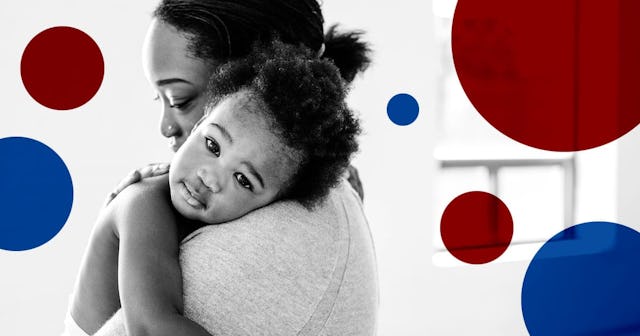'To Protect And Serve' Doesn't Apply To My Son

After a long week balancing a demanding job and an equally demanding toddler, I found myself looking for an escape—though I’ve realized it wasn’t from the job or from my toddler. I wanted a brief reprieve from the news.
So this weekend, I sought both refuge and comic relief in a 20-year-old standup special on HBO starring Dave Chappelle.
In his opening, Washington DC-native Chappelle details the many distinct ways in which he and a close white friend interact with police. Chappelle also explains his fear of dialing 9-1-1 and urges the racially-diverse crowd in DC’s Lincoln Theatre to consider what that must feel like—to be afraid to ask for help when you need it most.
He adds, “I’m not saying I don’t like police…I’m just scared of them.”
I don’t know if the stories Chappelle tells are true or not. Perhaps it’s his real-life moments sandwiched between genius, comedic hyperbole. But the fears and complexities he raises in this 20-year-old comedy special, tragically, still apply today.
From the killings of unarmed black Americans—including George Floyd, Breonna Taylor, Ahmaud Arbery, Walter Scott, Trayvon Martin, and countless others—to incidents like those of Christian Cooper, Brennan Walker, and four black boys held at gunpoint while fundraising—only a fool would deny that the progression of race relations is at a standstill in this country. In fact, it’s speeding backwards. And at its core is the broken relationship between law enforcement and the black community.
As is well documented, this is an issue that stretches back across generations. But in addition to acknowledging this fact, it’s vital that we avoid doing two things: 1) committing to revisionist history, and 2) overlooking history altogether. We can’t forget the indignities of the 19th century doctrine “separate but equal.” We can’t dismiss the images of fire hoses and police dogs attacking children in the 20th century. And, in the 21st century, we must continue to denounce those who still blame Black victims for their own demise.
For example, I recently read comments on social media that said Mr. Floyd “shouldn’t have been faking a $20 bill.” It pained and sickened me to see this. Even if the $20 bill theory is true—which we still don’t know if it is—is that an offense that warrants losing your life? If you have brown skin in this country, the answer seems to be yes.
Roberto Westbrook/Getty
It doesn’t matter where you work, what neighborhood you live in, or how many degrees you’ve earned. As extraordinary British author Afua Hirsch also explains, “no matter how beautiful you are, whom you marry, what palaces you occupy, charities you support, how faithful you are, how much money you accumulate or what good deeds you perform, in this society racism will still follow you.” If we want to even take baby steps forward as a country, and as a global society, each of us must acknowledge this fact. America is supposed to be the world leader. It’s time we start acting like it by confronting racism instead of pretending it doesn’t exist. If the next 20 years look like the last 20 years, we have ourselves to blame.
However, I do want to make one thing clear—I don’t in any way condone violence, and I definitely don’t condone violence against police officers. I respect them and the job they do, when they do it well, and I personally have never had a negative interaction with one. But I recognize my experience is unusual in a country where black people are more than twice as likely to be killed by police as their white counterparts.
This statistic scares the hell out of me. God-willing, my Black toddler will grow up to be a Black man one day. I know I won’t always be around to protect him. Every parent eventually comes to terms with this reality. But how do I prepare my child for a world in which the motto “to protect and to serve” doesn’t apply to him?
This article was originally published on